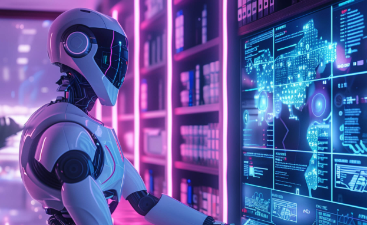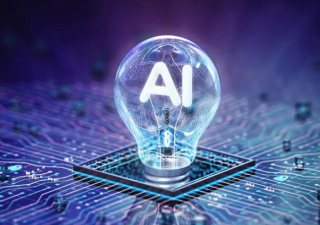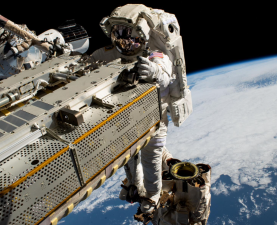In 2025, the technology sector is reshaping the way the world works at an unprecedented pace. The pace of global technological innovation has not slowed. From theoretical breakthroughs in laboratories to actual deployments in industry, technological evolution is progressing simultaneously in multiple dimensions. Several recent noteworthy technological developments aim to provide insights into technological progress. Technological development itself is inherently uncertain, and any predictions should be approached with caution. Based on publicly disclosed information and industry observations, this report strives to present a multi-dimensional and balanced picture of technological development.
From the revolutionary evolution of artificial intelligence to the breakthroughs in quantum computing, from the widespread deployment of 5G infrastructure to the explosive growth of Internet of Things (IoT) devices, each technology represents not only the evolution of a tool but also a fundamental shift in industry rules and how society operates.
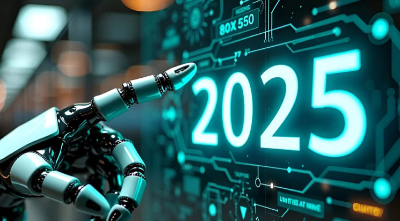
- Artificial Intelligence Empowers Comprehensive Industrial Upgrades
AI technology is no longer a future phenomenon; it is now the core driving force. By 2025, AI will achieve deep integration across manufacturing, finance, healthcare, education, and other fields. In particular, in generative AI, content creation, design, and programming will be automated, significantly improving efficiency. Enterprises will use AI to achieve personalized customization, bringing a new user experience and driving the industry's transformation towards intelligent and personalized capabilities.
- Quantum Computing Ushers in a New Era of Commercialization
Quantum computing technology is gradually becoming practical and is beginning to demonstrate tremendous potential in areas such as drug development, financial modeling, and optimization algorithms. By 2025, some industries will achieve quantum advantage, solving complex problems that are beyond the reach of traditional computing. This will not only advance the technological frontier but also provide businesses with a new competitive advantage.
- 5G and Its Evolution: Connecting the Next Generation of Data-Intensive Applications
5G network deployment is essentially complete and has entered the capability expansion phase (Release 17/18). Its lower latency (<1ms), higher data throughput (>10Gbps), and wider device support make it a critical infrastructure for connecting AI edge computing, smart factories, unmanned systems, and immersive interactive experiences.
In smart manufacturing scenarios, 5G supports real-time collaboration between industrial robots and MES systems, making production highly flexible. In autonomous driving, 5G-V2X communication enhances the breadth and speed of vehicle perception of road conditions and the surrounding environment.
With the development of 5G-A (5G Advanced) and future 6G standards, 2025 will be a critical point in the transition to "ubiquitous connectivity + intelligent communications," requiring enterprise IT infrastructure to be more resilient and equipped with distributed intelligent management capabilities.
- AR/VR 2.0: Building Immersive Work and Consumption Spaces
Augmented reality and virtual reality (AR/VR) technologies are expanding from their early applications in gaming and entertainment to a new stage as productivity tools. By 2025, AR/VR 2.0 devices will achieve higher resolution, lighter form factors, longer battery life, and spatial perception capabilities, driving the rapid development of remote collaboration, skills training, immersive learning, and virtual retail.
In corporate training, VR systems simulate high-risk or high-cost scenarios (such as chemical maintenance and surgical procedures), lowering the learning barrier and improving efficiency. In retail, applications such as AR makeup and virtual fittings increase conversion rates and customer satisfaction. In education, immersive classrooms are being piloted by universities worldwide, enhancing the depth and engagement of knowledge transfer.
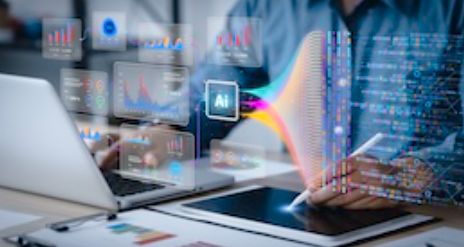
- Internet of Things (IoT): Evolving from Data Collection to Intelligent Systems
According to IDC, the number of global IoT devices will exceed 30 billion by 2025, covering key areas such as smart cities, smart grids, public services, and healthcare monitoring. The traditional "Internet of Things" is evolving into an intelligent system integrating "perception, cognition, and execution." In urban governance, traffic sensors and AI platforms collaborate to optimize traffic light control and traffic flow. In energy management, smart meters and distributed energy systems are integrated to form a "digital twin grid." In healthcare, continuous vital sign monitoring and predictive diagnosis and treatment models help improve the efficiency of chronic disease management.
However, the proliferation of devices also creates a massive cyberattack surface, prompting companies to incorporate "edge security" and "data sovereignty" into IoT system design.
Summary:
In the era of technological convergence, insight is more critical than mastery.
2025 marks a period of deep integration, from "single-point breakthroughs" to "multi-technology collaboration." AI is not just a tool, but also infrastructure. Quantum computing is no longer out of reach, but is evolving alongside traditional systems. The Internet of Things and 5G are building real-time neural networks, while VR/AR are redefining space and perception.
Industry decision-makers should not focus solely on technology itself, but should consider its positioning and impact within organizational strategy, business processes, talent structure, and societal value systems. Future competition will no longer be a competition of single technologies, but a systematic contest of "cognition-action-evolution" capabilities.
In this constantly redefined world, only through continuous learning and open collaboration can we truly harness the tide of technology and seize the initiative in change.




